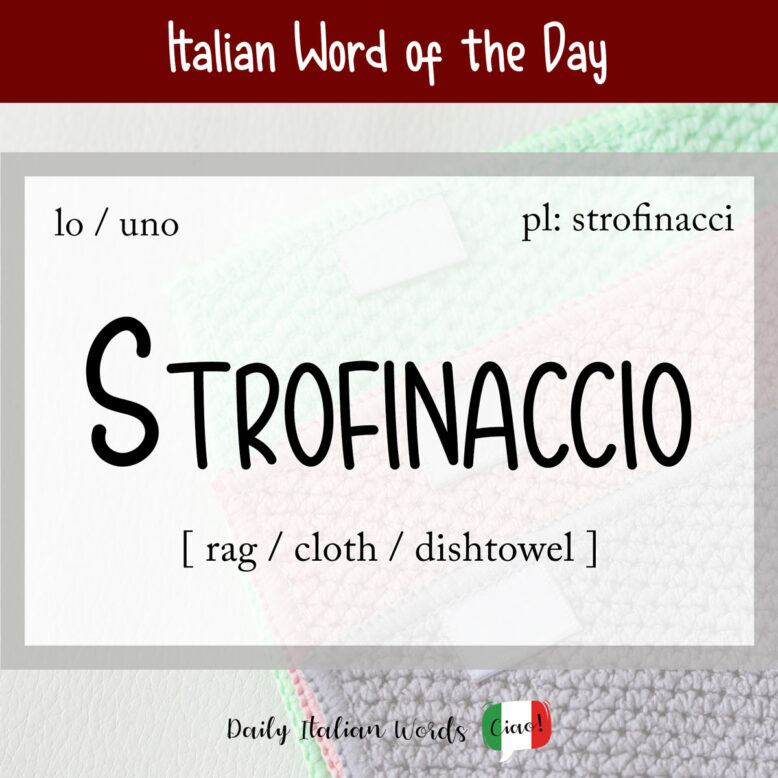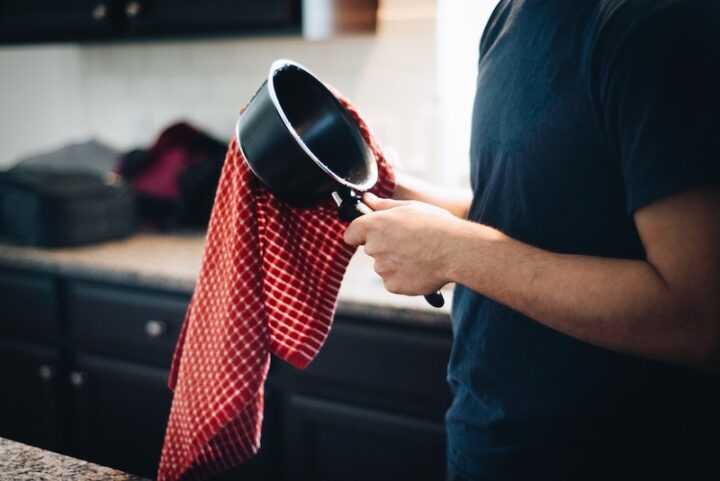The word for any piece of cloth used for drying dishes or for household cleaning is strofinaccio in Italian.
strofinaccio
rag / cloth / dishtowel

Here are the definite and indefinite articles used with this masculine noun:
- lo strofinaccio = the rag
- gli strofinacci = the rags
- uno strofinaccio = a rag
- degli strofinacci = some rags
If we break it down into its component parts, we can see that it is composed of the verb strofinare (to rub) and the pejorative suffix -accio which denotes something bad or unattractive.
Some examples of things that can be called strofinaccio in Italian include rags of all sorts, dishtowels (or tea towels if you live in the UK), dust cloths, and floor cloths.
Passami lo strofinaccio così posso asciugare i piatti.
Hand me the dish towel so I can dry the dishes.

There are plenty of synonyms for strofinaccio, many of which are only used in specific regions of Italy. These include:
- panno da cucina = a large and thick piece of wool or other fabric used for cleaning and dusting
- straccio = (one of the most common synonyms) a piece of fabric or cloth, discarded because it can no longer fulfil its primary use, but reusable for domestic purposes
- cencio = a synonym of straccio in almost every sense of the word, mainly used in Tuscany but widely known elsewhere
- borraccio = used in the north
- borracciolo = used in the north
- canovaccio = used in the north, from the French canevas
- pezza = from the French pièce and the Celtic pettia
Figuratively speaking, strofinaccio can refer to a person or thing that is in poor condition due to being overused or overworked. It can also be a synonym for someone who is held in low esteem and thus treated badly.
Il mio capo mi tratta come uno strofinaccio.
My boss treats me like a doormat.
Heather Broster is a graduate with honours in linguistics from the University of Western Ontario. She is an aspiring polyglot, proficient in English and Italian, as well as Japanese, Welsh, and French to varying degrees of fluency. Originally from Toronto, Heather has resided in various countries, notably Italy for a period of six years. Her primary focus lies in the fields of language acquisition, education, and bilingual instruction.


